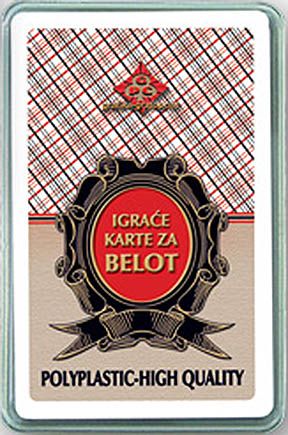Belote (1930) Board Game
Belote is a popular card game that originated in France in the 1930s. It is a trick-taking game that is played with a deck of 32 cards. Belote is commonly played in Europe, especially in countries like France, Bulgaria, and Greece. The game has simple rules but requires strategic thinking and teamwork to win.
Game Components of Belote
How To Setup Belote
To set up Belote, the deck is shuffled and then cut by the player to the left of the dealer. Eight cards are dealt to each player in batches of three, two, and three. After the initial deal, the top card of the remaining deck is turned face up, determining the trump suit unless a player chooses to change it. If all players pass, a second round of bidding allows players to propose a different trump suit or choose no trumps or all trumps.
Gameplay Mechanics and Game Objective
Player Experience
Belote offers a dynamic and strategic gameplay experience, particularly enjoyed by adults in France and other European countries. It combines elements of trick-taking, bidding, and melding, making it both challenging and engaging. The game requires communication between partners and strategic planning to maximize points.
Pros
Cons
Personal Thoughts on Belote
Belote is ideal for those who enjoy complex card games with deep strategic elements. It is a great choice for adults looking to engage in a mentally stimulating activity that also fosters social interaction. While it may not be the best fit for casual or younger players due to its complexity, Belote remains one of the most beloved and enduring card games in many European countries.
We are supported by our audience. When you purchase through links on our site, we may earn an affiliate commission, at no extra cost for you. Learn more.

